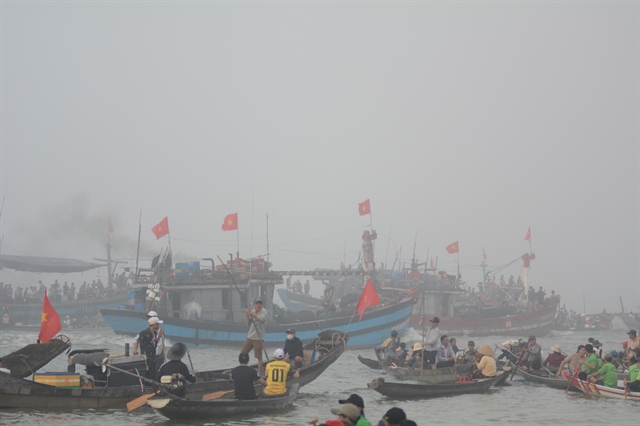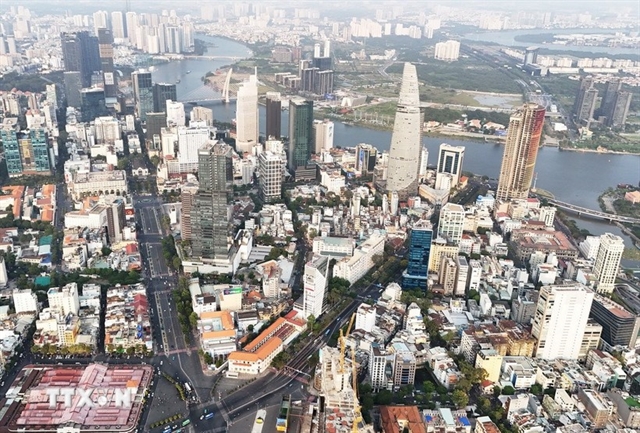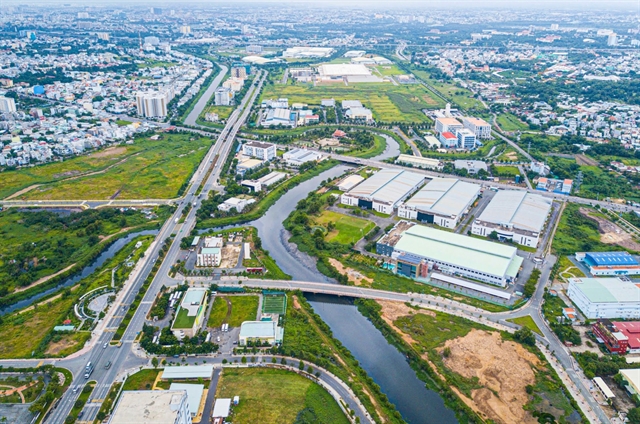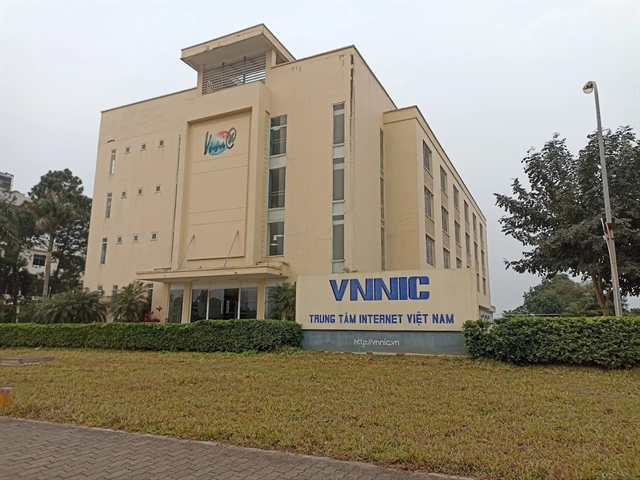 Economy
Economy
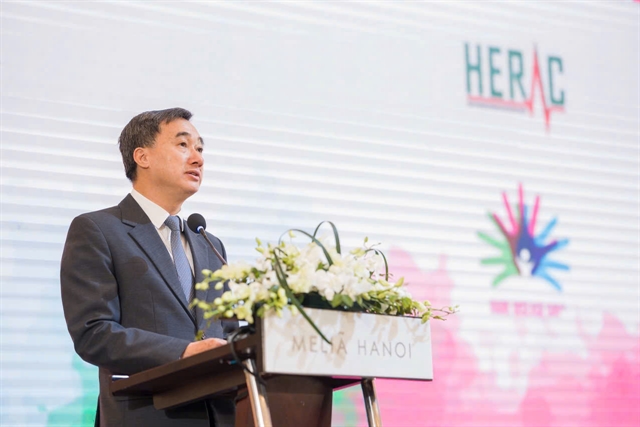
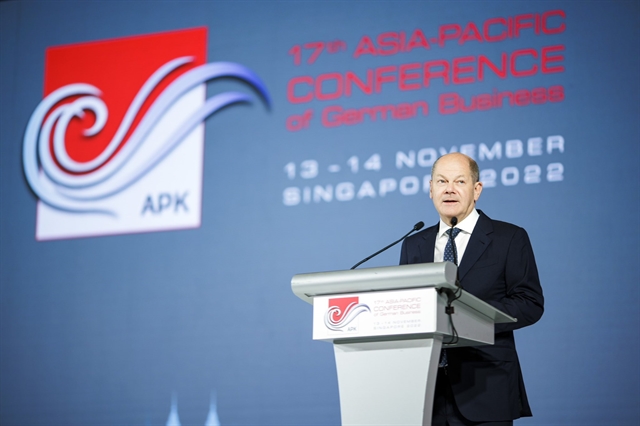 |
| German Chancellor Olaf Scholz speaks at the 17th APK in Singapore on Monday. — Photo from the Chancellor's Twitter |
By Mai Hương
HÀ NỘI — Diversification but no decoupling from China.
That is the message German Chancellor Olaf Scholz may want to send to China and the whole region through his Asian tour this month in efforts to realise dual goals – reducing Germany’s over-dependence on China and seeking new momentum to avoid the prospect of recession in Europe’s largest economy.
Diversification was the most common word in the 17th Asia Pacific Conference of German Business (APK) which for the first time saw the presence of a German chancellor.
“As the first Chancellor who has the privilege of attending this conference in person, my message is: Germany is keen on strengthening its economic ties with your region!” Scholz said in his speech at the conference in Singapore on Monday.
Wrestling with an energy crisis and inflation hitting a new all-time high of 10.4 per cent in October, Germany is on verge of falling into recession next year which pushed its leader to seek new momentum, while diversification is arising as an urgent need for the country.
“Diversification makes your businesses less vulnerable – and our economies more stable and secure,” Scholz said.
Six months since his official trip to Japan in April, Scholz paid a visit to China early this month, stopped over in Việt Nam and Singapore before heading to the G20 Summit in Bali, Indonesia, this week that sent a clear signal that Germany wants to engage deeper in the Asia region – the most important non-European trade region for German companies.
At the 17th APK, he highlighted the importance of free trade, noting success stories in this region including Singapore, India, Việt Nam and Indonesia, or at a larger scale such as the Regional Comprehensive Economic Partnership (RCEP) and the Comprehensive and Progressive Agreement for Trans-Pacific Partnership (CPTPP).
“In Europe, these agreements spurred our ambition to take our own trade agenda forward. Our existing free trade agreements with your region – with Japan, Korea, Việt Nam and Singapore – are true success stories,” Scholz said.
Germany is seeking an ambitious agenda with the region, covering areas such as climate protection, digital transformation, smart cities and urban mobility.
EU and Germany have realised they are over-dependent on China and this dependence when it comes to certain raw materials or critical technologies may be weaponised during times of heightened tensions.
“Our view of the matter is clear: the best way to achieve more resilient supply chains is to diversify our trade relations,” Scholz said.
Rebalance the relationship
Germany may find the Indo-Pacific region is more than China but decoupling from the world’s second-largest economy is definitely not a choice, especially after its ties with Russia have sharply declined.
Rebalancing the relationship with China is key to Germany’s national strategy in the future.
“Of course, China remains an important business and trading partner... The current geopolitical environment and the economic side-effects of the pandemic call for more resilience and for building greater technological sovereignty,” Scholz said, emphasising today’s China is very different to the China of five or ten years ago, thus “German’s political and economic approach needs to reflect that”.
German’s new approach is now widely touted as ‘China + X’ which encourages stronger ties with other partners such as India, Việt Nam, Indonesia and Australia.
“We (the German government) have a huge internal discussion of whether should we decouple from China. And our government strategy is no decoupling,” a source familiar with the matter told Việt Nam News, noting the German government is aware of the problem of being too dependent on China and encouraging companies to seek other places to invest.
China has remained Germany’s biggest trade partner for six years in a row, with volumes reaching over 245 billion euros (US$246 billion) in 2021.
German Economy Minister Robert Habeck also emphasised diversification is not about decoupling, but is about seeking new connections and new partners in other regions.
“We promote diversification. We need to reverse supply chains, markets and export infrastructure in order to reduce dependency, especially in key strategic industries,” Habeck said, noting critical sectors like telecommunication, energy sector, chips and semiconductors must be protected.
And certainly, Germany’s approach to strengthening cooperation in the region, especially with ASEAN, has been welcomed.
“From Singapore's point of view, we encourage better diversification and we are all for greater resilience,” said Singaporean Deputy Prime Minister Lawrence Wong at the 17th APK. Besides security, economic and social-cultural views, Wong pointed out new opportunities for cooperation in sustainability and climate change.
Earlier on Sunday during Sholz's visit to Việt Nam, both sides agreed to foster their strategic partnership and expand cooperation in areas such as defence, energy transition, labour and vocational training. — VNS

